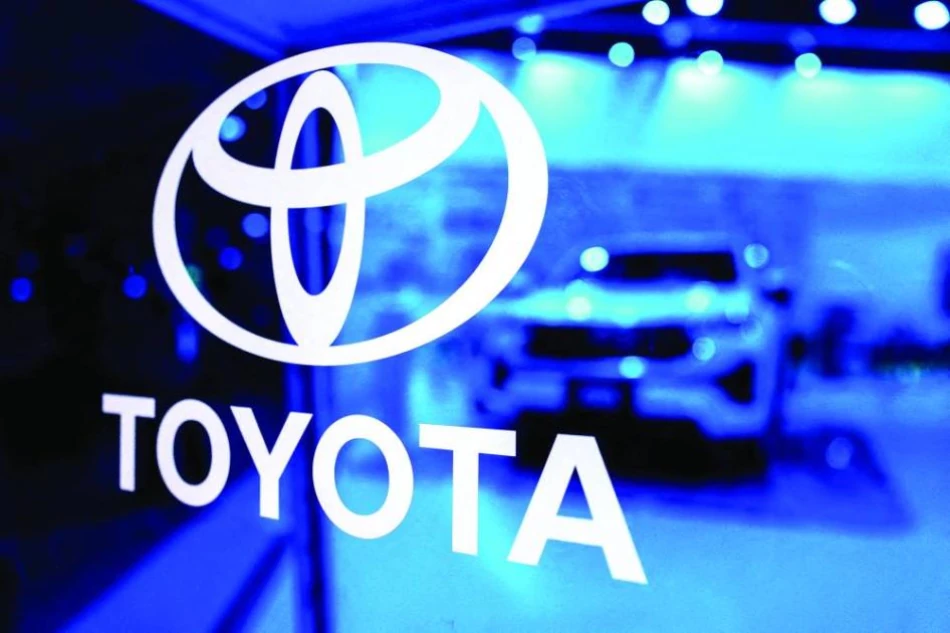
India Emerges as Global Auto Manufacturing Hub: Toyota, Honda, and Suzuki Drive Transformation
Japan's biggest automakers are pouring billions into India, turning their backs on China as their main manufacturing hub. Toyota, Honda, and Suzuki plan to invest over $11 billion in new factories and production lines, betting on India as their next global manufacturing center while Chinese electric vehicle makers squeeze them out of their home turf.
This shift comes just a week after President Trump and Japanese Prime Minister Sanai Takaichi signed a deal to secure strategic mineral supplies through mining and processing. Both countries want to strengthen supply chains for materials used in everything from renewable energy to electronics and cars.
The numbers tell the story clearly. Japanese direct investment in India's transport sector jumped seven-fold between 2021 and 2024, hitting $2 billion last year. Meanwhile, Japanese investment in China's transport sector dropped 83% to just $300 million.
Toyota, the world's largest automaker, and Suzuki, which controls 40% of India's car market, announced separate investments exceeding $11 billion to boost their production and export capabilities in the world's third-largest car market. Honda confirmed last week it plans to make India a major production and export base for one of its future electric vehicles.
Sure, India offers lower costs and plenty of workers. But the real driver is Japanese companies moving away from China as both a market and manufacturing center. Chinese electric vehicle makers like BYD have created brutal price wars that make profits hard to come by.
"India is an ideal option to replace the Chinese market," says Julie Boote, an analyst at Pelham Smithers Associates. "The Japanese see it as a more profitable market right now because it's protected from direct Chinese competition."
Here's where it gets interesting for investors and manufacturers. The price war between Chinese EV makers has made China a tough place to make money. Now Chinese companies are expanding abroad and grabbing market share from Japanese competitors in places like Southeast Asia.
Toyota is already working with Indian and Japanese suppliers to make hybrid car components locally and cut costs. The company faced supply shortages because demand shot up so fast. One Toyota supply executive said: "It's no longer about global specifications, but local specifications suitable for India."
Toyota plans to launch 15 new and updated models in India by the end of the decade and raise its market share from 8% to 10%. Company president Koji Sato said at Japan's Mobility Show: "The Indian market is extremely important and expected to continue strong growth, which is what drives many companies to focus on it."
The company announced over $3 billion last year to expand its southern India factory by 100,000 cars annually, plus build a new plant in Maharashtra state that should start production before 2030. Total capacity will exceed one million cars per year.
Japanese companies also benefit from Prime Minister Narendra Modi's policies aimed at keeping economic growth near 8% by attracting more foreign investment. The government offers incentives to manufacturers who produce for both domestic and export markets.
India produced about 5 million passenger cars last fiscal year and exported nearly 800,000 of them - up 15% from the previous year. The country's strict limits on Chinese investment give Japanese companies another advantage, making it harder for new players like BYD or existing ones like MG Motor to expand.
"India's protective policy toward China is a blessing in disguise for Japanese automakers," says Guru Vengal from S&P Global Mobility. "It opens up space for them to expand and strengthen their competitive position."
For Honda, India represents its biggest motorcycle market, but the company now plans to expand its car presence. CEO Toshihiro Mibe ranked India among the company's top three global markets alongside the United States and Japan.
Honda wants to make India a main production and export base for its "Zero" series electric vehicles, with plans to start exporting one model to Japan and other Asian markets by 2027.
Suzuki allocated $8 billion to raise its Indian production capacity to 4 million cars annually from 2.5 million currently. Company president Toshihiro Suzuki said: "We aim to make India Suzuki's global production center and boost our exports to overseas markets."
This creates significant stakes for global supply chains and trade patterns. India is steadily becoming the new manufacturing base for Japanese cars, reshaping Asia's automotive industry map and putting New Delhi in a strong competitive position against Beijing.
Most Viewed News

 Omar Rahman
Omar Rahman






